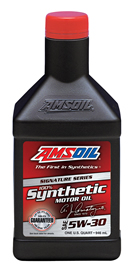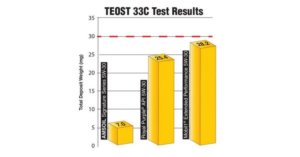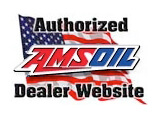
27 Sep Deposit Protection Is Critical For Turbocharged Engines
Motor oil quality must stay ahead of the curve.
It may be a good time to invest your retirement funds in a company that builds automotive turbochargers; they’re predicted to be in most new passenger cars/light trucks by 2020.
As such, we’ve focused quite a bit of time and energy on turbos and the challenges they present to motor oil. Today, I want to dive a little deeper into turbo tech and explain how they work and why AMSOIL Dealers should keep turbos top-of-mind in the coming years.
An engine is essentially an air pump, and the more air it ingests, the more fuel it can burn – and the more power it can produce. There are a few ways to increase the amount of air the engine takes in, but turbocharging has emerged as the favored choice of automakers.
As shown in the diagram, exhaust gases commonly exceeding 1,000ºF spin a turbine, often at more than 150,000 rpm, which drives the compressor that draws ambient air used to pressurize the combustion chamber. The added oxygen combined with direct injection and advanced engine-tuning helps the engine burn fuel more efficiently, boosting fuel economy. It also allows the engine to burn more fuel for increased power. As a result, a turbocharged four-cylinder engine can make as much power as a non-turbo six-cylinder engine. This advancement allows automakers to build vehicles with smaller, lighter engines that don’t sacrifice power or torque. Motorists enjoy the performance and fuel economy they demand, while automakers meet increasingly strict CAFE (Corporate Average Fuel Economy) requirements.
As they say, there’s no such thing as a free lunch, and in this case, it’s the motor oil that ends up footing the bill. The turbo’s center section contains an oil-lubricated bearing. The tremendous heat and stress turbos create can cause some oils to break down and form harmful bearing deposits, known as turbo coking. Over time, turbos can suffer reduced performance, or fail altogether.
For this reason, auto manufacturers and oil companies – including AMSOIL – automatically include turbocharged vehicles in their severe-service category when prescribing oil-change intervals.
 The TEOST 33C Test (ASTM D6335), an industry-standard bench test that simulates turbocharger ASL 5W-30operating condi
The TEOST 33C Test (ASTM D6335), an industry-standard bench test that simulates turbocharger ASL 5W-30operating condi
tions, has taken on added importance in today’s automotive landscape. With the predicted rise in turbo use, it’s more important than ever for motor oils to protect against harmful high-temperature deposits to keep vehicles running properly. To meet the API SN Resource Conserving and ILSAC GF-5 motor oil specifications that are often recommended by vehicle manufacturers, a 5W-30 motor oil must limit total deposit formation to 30 mg or less in the TEOST Test.
In our published tests, AMSOIL Signature Series 5W-30 Synthetic Motor Oil held the total weight of deposits to 7 mg, well under the 30 mg limit required by the API and ILSAC, while Royal Purple® API 5W-30 and Mobil 1® Extended Performance 5W-30 came in just under the limit at 25.4 mg and 28.2 mg respectively.
Signature Series 5W-30 Synthetic Motor Oil protects against harmful deposits on turbochargers 4X better than Mobil 1® Extended Performance and 3.6X better than Royal Purple® in industry-standard testing.


